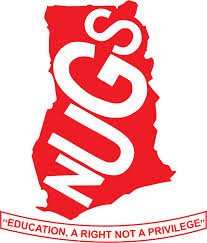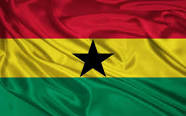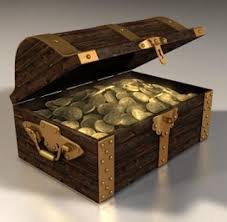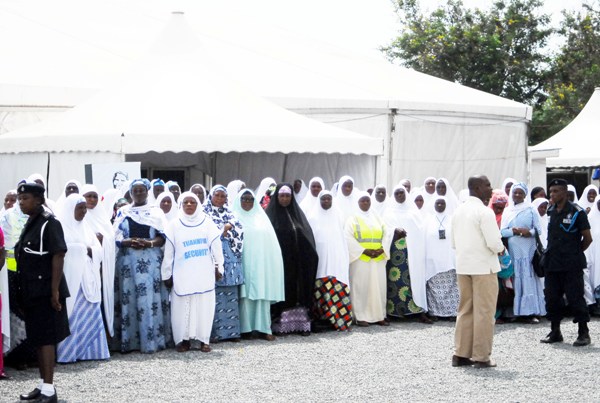
By: Eugenia ANderson
Upon reading the article of Prof. R. E. V. Gyampo on the restoration of the conscience of the nation, the immediate question I asked myself was, where is the NUGS voice in the call for national rehabilitation and accountability. Any adult above 40 years or anyone conversant on Ghana’s political history knows the critical role social groups such as the Association of Recognised Professional Bodies (ARPB), National Union of Ghana Students (NUGS), the Ghana Bar Association (GBA), the Movement for Freedom and Justice (MFJ), Christian Council of Ghana (CCG), and the Catholic Bishops’ Conference (CBC) have played in nation building and development in Ghana. The focus of this paper is to give a historical understanding of the role university students played in national development, before the Fourth Republic.
Due to the importance attached to university education, university students assumed a patriotic and nationalistic posture as an ‘incipient elite’ who served as ‘political forerunners’, ‘unofficial opposition’ and ‘self-ordained vanguard…of national development’ and ‘a conscience of the nation’ who consistently advocated for change even in a stifled political environment. Failed neoliberal economic policies, poor governance, abuse of power, nepotism, and political crises, made student extremely vocal and proactive and student activism took shape as a visible social movement within Ghana’s political space. Even before Ghana’s independence, students imbibed with nationalistic sentiments fought against colonial rule.
After the 24th February 1948 shooting and subsequent riot, students from Mfanstipim, Adisadel College and St. Augustine’s College went on strike to express their grievances due to the ongoing political developments in Ghana leading to the expulsion of about 150 students and four teachers. To make up for their loss, Dr. Nkrumah provided the dismissed teacher £10 which served as the seed money with which Ghana National College was established to absorb these dismissed students and teachers.
NUGS actively engaged both democratic and military governments in Ghana and abroad. NUGS subtly opposed policies of Dr. Nkrumah’s abuse of power by condemned the dismissal of Supreme Court Judges and demanded the resignation of the Attorney-General. When Dr. J.B. Danquah died in detention in 1965 due to the Preventive Detention Act of 1958, students of Commonwealth Hall in the University of Ghana held a memorial in his honour. Under Dr. Busia, students who were pro-leftist opposed his domestic and international policies especially his pro-western and anticommunist stance and the institution of the Student Loan Scheme. NUGS leadership urged the government to grant amnesty to all Ghanaians in political exile especially Dr. Kwame Nkrumah and demanded that all government officials should declare their assets as stipulated by Article 67 of the Constitution of the Second Republic.
Most governments refused to recognise the power students wielded in the country unless it was favourable to them. Students became the vanguards of Ghana’s democracy and vehemently opposed any policies especially by the military governments to legitimise their governance. All the military governments (NLC, NRC/SMCI/SMCII, AFRC, and PNDC) came in as ‘provisional’ with an agenda of purging the country of its political ‘rogues’ and return the country to democracy and as a result enjoyed some student support. Yet, when these governments found reasons to stay longer in office this student support immediately alternated into opposition. The two longest serving military juntas, the NRC/SMCI/SMCII and the PNDC both enjoyed student support at the initial stage and students even aided in the developmental agenda through self-aid programs. Yet, this student support immediately turned oppositional upon the realization that these governments had no intention to hand over power to a civilian government. Student view contributed to public opinion and subsequently to the end of these regimes. For instance, NUGS played an active role in the persistent demand for the PNDC to return to democratic rule and formed part of the Constituency Assembly which drafted Ghana’s 1992 constitution.
In the Fourth Republic, the role of NUGS as the nation’s conscience has been taken over by opposition parties, the media, and civil society groups. The NUGS voice has been lost because political parties have succeeded in politicising student activism and their leadership through the creation of political party student wings on campus such as TEIN, TESCON and TESCHART. Though political party student wings are not new in the universities, pre-1992 student wings did not interference in student activism as the student movement did not encourage the election of politicised leaders. Yet, political parties, in the Fourth Republic, have succeeded in polarising the students front such that, it is difficult to present a united student body on issues of student and national. Through the financial aid they provide for aspirants, they have a major stake in deciding who becomes the SRC/NUGS executives especially the president. It appears that now party interests now supersede student and national interest among the student body of the 21st century. Most student activism issues revolved around parochial issues such as the annual increase in Academic Facility User Fee (AFUF) and the Residential Facility User Fee (RFUF), student loan scheme and residential policy introduced. Prof. Gyampo is therefore right to say that TESCON and TEIN were created to divide the ranks of students so they won’t worry any government again.
In a time where the youth of Ghana is demanding for government to be reasonable in its expenditure and to focus on policies which prioritise the youth and development, the question I ask is where is the NUGS voice? Why is NUGS silent? What is the take of NUGS in the #Fixthe country banter? Rise up NUGS and help to build the country.
REFERENCE
Agyemang-Rawlings, N. K., It takes a Woman: A Life Shaped by Heritage Leadership and the Women who Defined Hope, (Accra: Hillcroft Bay Press, 2018)
Chazan, N., An Anatomy of Ghanaian Politics, Managing Political Recession, 1969-1982, (Colorado: Westview Press Inc., 1983)
Daily Graphic, 7th April, 1971, “Students Want Nkrumah Back”
Daily Graphic, 7th April, 1971, “Students Want Nkrumah Back”
Luescher-Mamashela T. M. & Mugume, T., “Student Representation and Multiparty Politics in African Higher Education, Studies in Higher Education, 39(3), 2014, p. 502; Philip G. Altbach, “Students and Politics”, Comparative Education Review, 10(2), 1966
Ninsin K. A. & Prah F. K. (eds.), Ghana’s Transition to Constitutional Rule, (Accra: Ghana Universities Press, 1991)
Oquaye, M., Politics in Ghana, 1972-1979, (Accra: Tornado Publications, 1980)
Oquaye, M., Politics in Ghana, 1982-1992, Rawlings, Revolution and Populist Democracy, (New Delhi: Tornado Publications, 2004)
Sapong, N. Y. B. “Aluta Continua: Social Movements and the Making of Ghana’s Fourth Republic, 1978-1993”, a PhD Thesis submitted to the Southern Illinois University, 2009
Yeebo, Z., “Ghana: Defence Committees and the Class Struggle”, Review of African Political Economy, 32, 1985, pp. 65-66.




